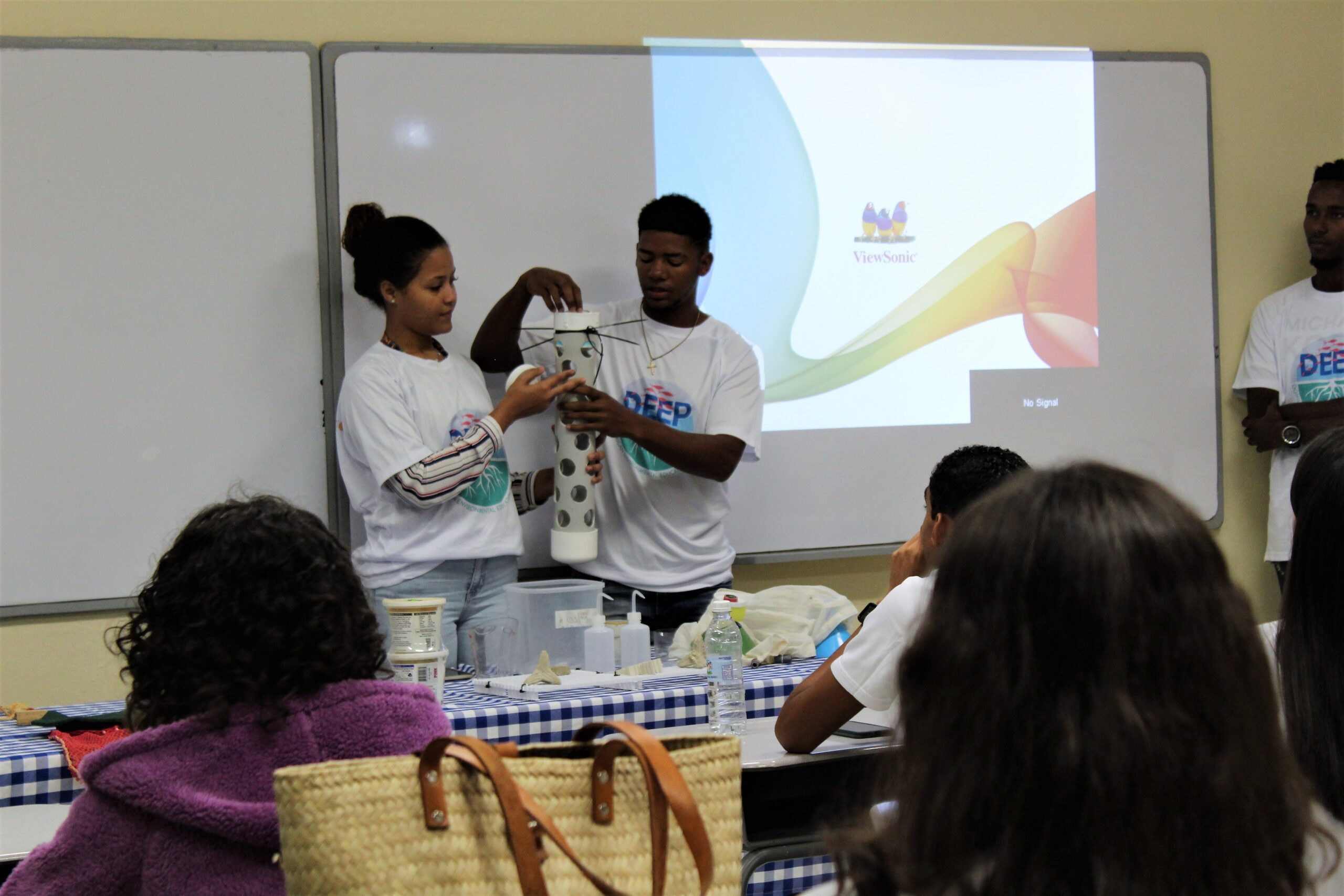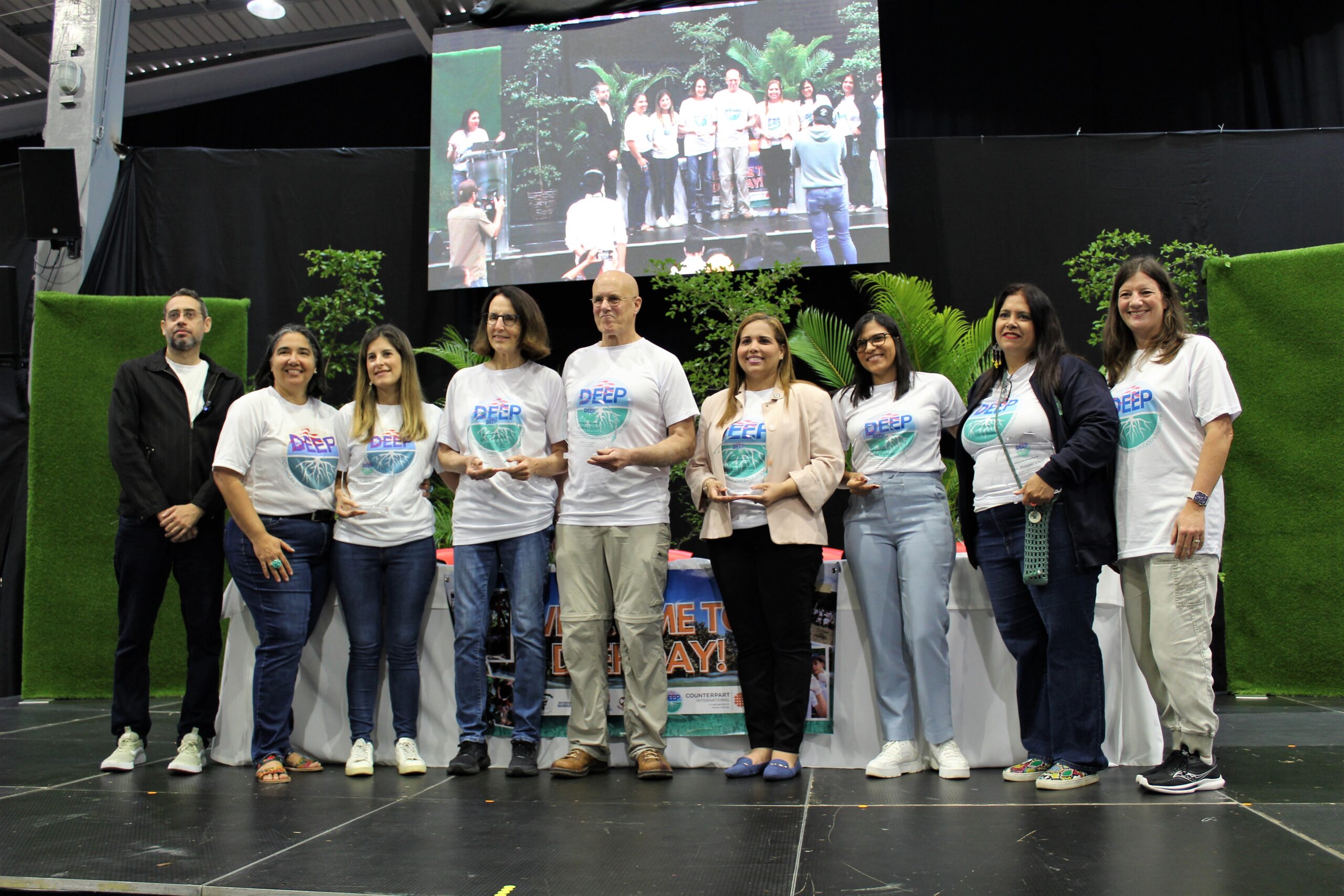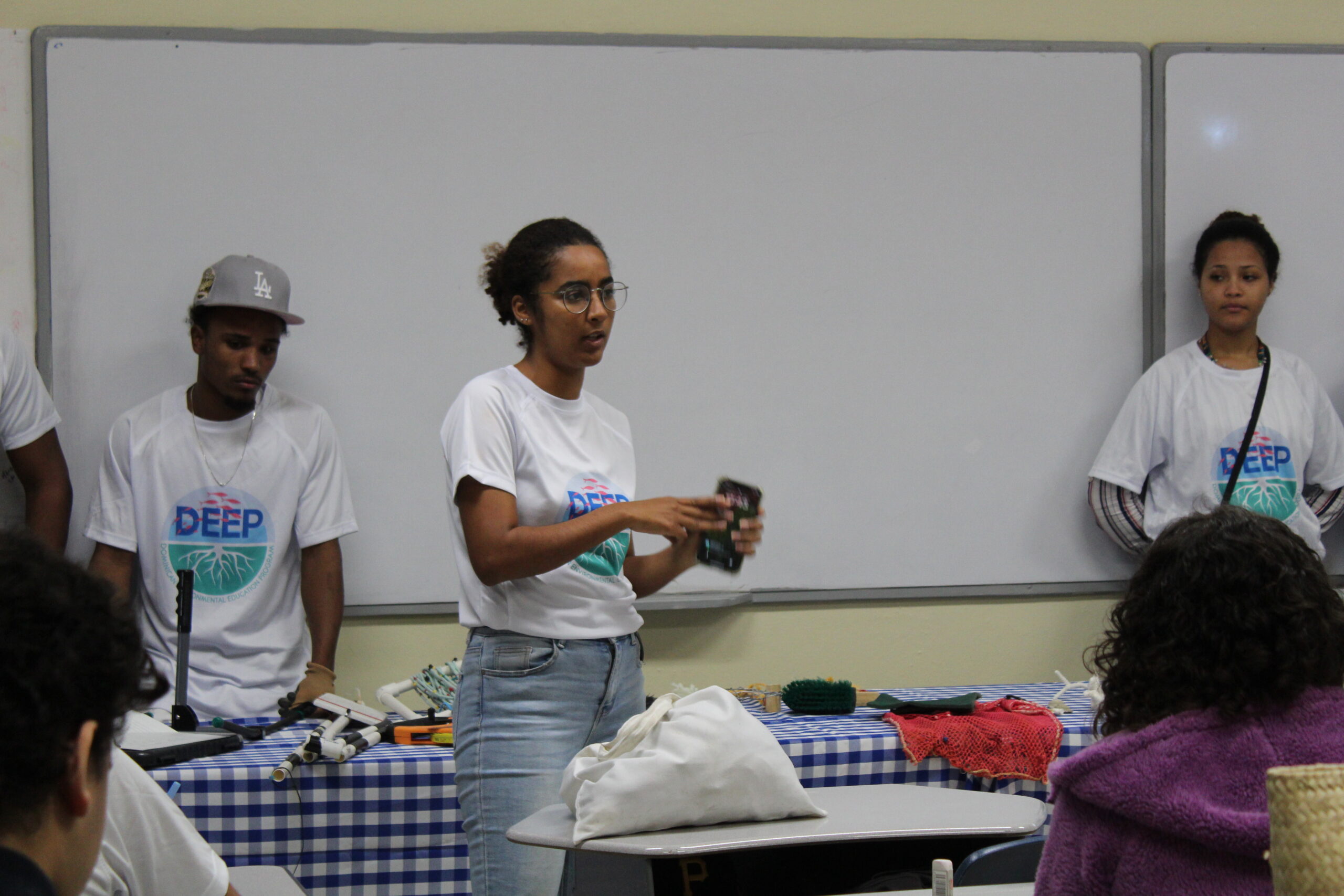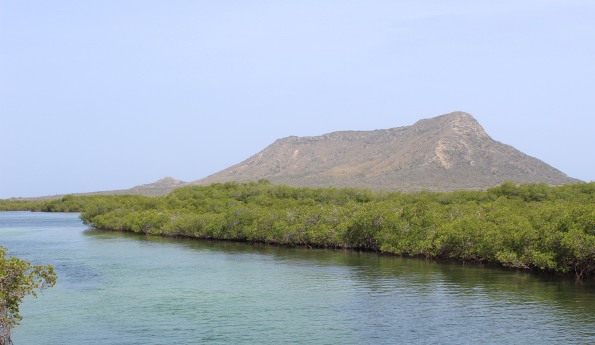Hundreds of students participating in the Dominican Environmental Education Program (DEEP) gathered in the auditorium of New Horizons School in the heart of Santo Domingo, Dominican Republic last December to recognize the dedication of their teachers, celebrate the program’s accomplishments, and present their environmental projects to their peers, as well as the NGO partner organizations and government officials.
DEEP Day occurs every year to celebrate the success of the program and underline its importance in the education of the next generation of young Dominicans. They will be the ones responsible for addressing the Caribbean island’s ecological challenges linked to climate change.
Implemented by Counterpart and funded by the Frohring Foundation, the DEEP program began in 2015, working with different schools to promote applied and experiential learning of environmental sciences for students and teachers while promoting opportunities for young people by creating spaces for collaboration with environmental organizations.

Students present their environmental projects to their peers, as well as the NGO partner organizations and government officials for DEEP Day.
Currently, the DEEP program is partnering with Carol Morgan School, Dominico Americano School, New Horizons School and Babeque High School.
The success of the program lies in the Near-Peer Mentorship initiative, which places older, college-aged mentors with the high school students. Both the near-peer mentors and the younger students work on a variety of environmental issues, such as biodiversity monitoring, water quality assessment, air pollution, solid waste, mangroves, among other topics. They become invested in creating solutions for a sustainable future for their country. The mentors inspire the high school students to realize their potential and their passion for protecting the natural resources of the island.
“What DEEP means to me is an opportunity to share my knowledge about the environment and my passion for caring about it, and to transmit this to the future generations so we can keep enjoying it,” said Ana Carolina Hernandez-Oquet, a near-peer mentor.
The DEEP program gives students first-hand experience and connects them to networks that help them land jobs after they graduate.
“There is always a space for sustainability,” said Marlig Perez, the DEEP program director, no matter what career path they choose.
Gwen Appel, vice president of programs at Counterpart, said the DEEP program is part of the larger picture of Counterpart’s 15 years of work in the Dominican Republic, including the USAID-funded Integrated Marine Ecosystem Management project, which concluded last year.
In terms of environmental education, the DEEP program is setting the standard for the rest of the world to follow. “You are our future,” Appel said.
Dennis Taylor, a board member of the Fohring Foundation, echoed those sentiments. “You are showing how we can make a difference,” he said to the students. “We look forward to you saving the world.”
The DEEP program expects to continue its work throughout 2023, hoping to expand to more schools, continuing its efforts towards a future with a generation of young people committed to investigating and protecting the environment.
For more information about the Near-Peer Mentorship program, read our DEEP profiles of Andreina Valdez and Daniel Veras.






